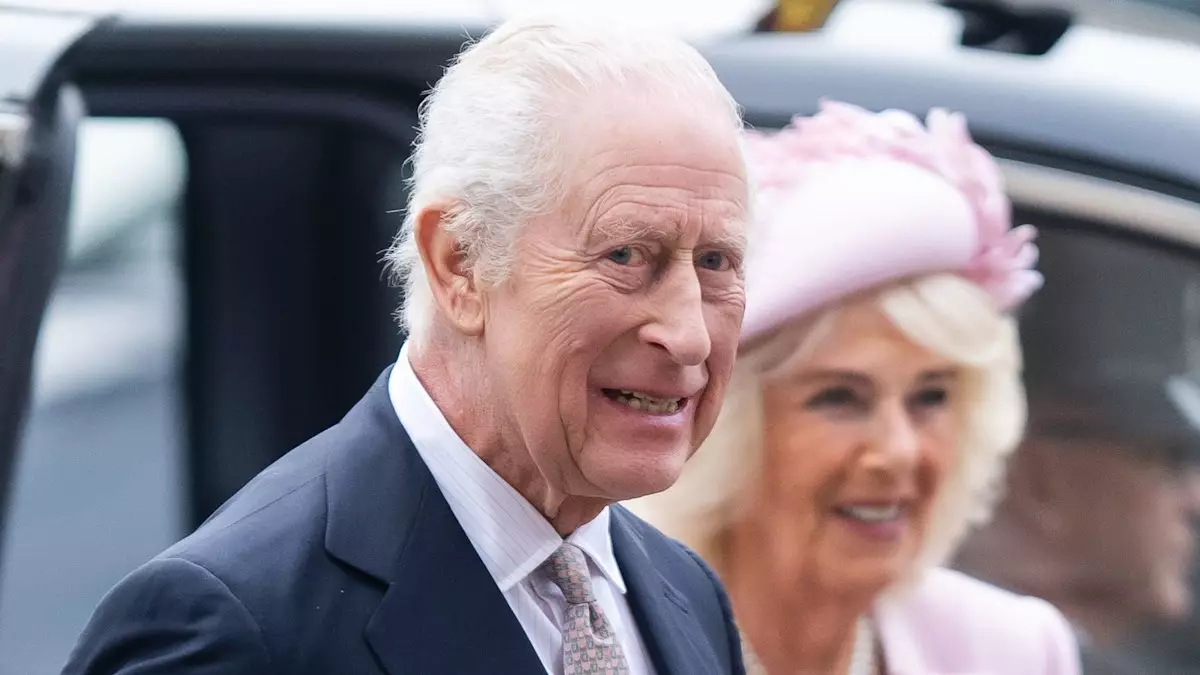The announcement from Buckingham Palace regarding King Charles’s hospitalization due to complications from cancer treatment resonated throughout the royal community and beyond. While the palace reassured the public that the King was recuperating, the situation leads to an undeniable contemplation of his rigorous work ethic. Observers were quick to notice the paradox between the monarch’s health and his unyielding commitment to royal duties. Despite supportive assurances, the looming question remains: Is King Charles pinning a touch too much on the fabric of his responsibilities as he prepares for an upcoming royal visit to Italy in the coming days?
Queen Camilla’s Concerns
Queen Camilla’s distress over her husband’s incessant endeavors is both heartfelt and relatable. Her depiction of him as someone who “won’t slow down” tells a story that transcends royal duties; it reflects a profound battle between personal health and public expectation. At 76 years old, King Charles stands at a crossroads where his storied dedication conflicts with a critical need for self-care. Camilla’s pleas for her husband to ease off his workload speak not just to a wife’s concern but a reality faced by many in high-pressure roles. The King’s tendency to immediately return to work after a hospital stay speaks to a deeply seeded mindset that values industriousness over well-being—a mindset rooted in a societal demand for productivity.
The Culture of Workaholism
The notion of workaholism has permeated society, often championing industriousness at the expense of self-care. Dr. Mohammed Enayat, an authority in longevity, casts light on the psychological ramifications of this zeitgeist. His assertions suggest that high-achievers, such as King Charles, may be programmed to derive self-worth from their productivity. Such societal conditioning can lead individuals to prioritize work over rest, setting a perilous precedent that threatens personal health. The pressure to conform to expectations of constant engagement might lead the King—and many like him—into a perilous cycle of neglecting the very essence of health and happiness.
Understanding Identity Through Productivity
Elizabeth Walker, a professional recovery coach, provides insightful commentary on the intersection of identity and productivity. The dilemma she highlights—asking oneself “Who am I without my productivity?”—is one that many professionals grapple with, often leading to an internal struggle for self-validation. For King Charles, his identity shines through his royal duties, mission work, and public appearances. Yet this identity is being tested in the face of health challenges. The culture of overworking can inhibit emotional processing and, ultimately, self-discovery, relegating individuals to mere roles rather than holistic human experiences.
Health Risks and the Quest for Balance
The potential repercussions of neglecting rest are alarming. As Elizabeth poignantly articulates, human beings are not machines; we cannot simply replace a worn-out part. The consequences of adopting such a mechanical view of existence can result in chronic stress, anxiety, and an emotional disconnect that runs deeper than mere fatigue. Furthermore, the consequences of such burnout extend to familial and social spheres, affecting relationships that are often as vital as work commitments. The King’s persistent dedication, while laudable, demands a balance that appears elusive in his royal routine.
A Challenge for the Monarch
In the face of an important royal engagement, there is an inherent hope that King Charles will consider his health in a proactive light. The delicate dance of duty and self-care must be meticulously orchestrated in order for him to fulfill his role, both as a King and as a husband. The prevalent expectation that he should seamlessly transition from worry over his health to the demands of royal life is unrealistic and potentially detrimental to his longevity.
As King Charles navigates this intricate phase of his life, his journey serves as a poignant reminder of the need for balance in our own lives. His experience highlights the necessity of empowering rest and reflection—a fundamental component of not only recovery but of leading a fulfilling life, even amidst the rigors of public service. Instead of merely celebrating productivity, society must learn to elevate the importance of rest as an equally powerful contributor to success.

